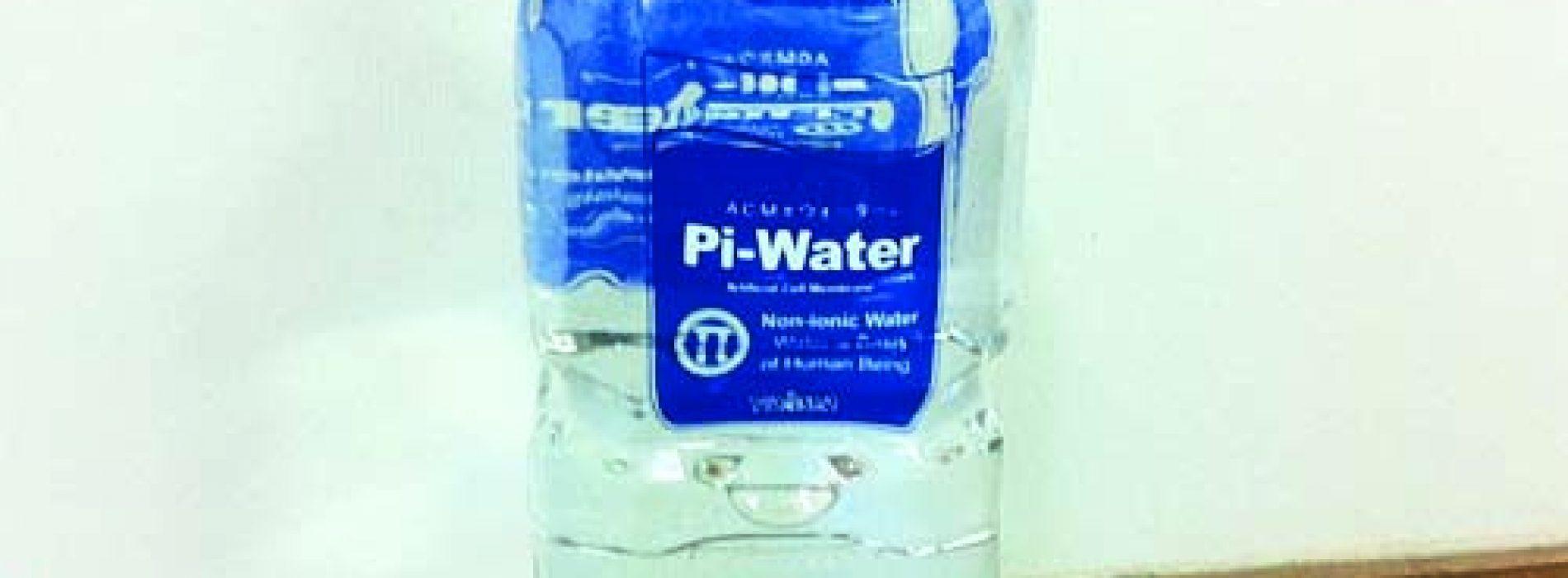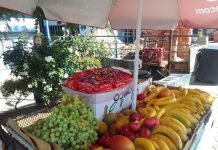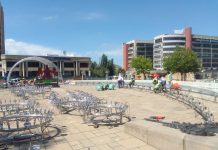Africa-Press – Lesotho. Even amid the severest drought, Lekhalong is one spring that refuses to dry. And a company in the business of bottling water is banking on that remaining the case for many years to come.
Lekhalong Natural Spring Water generates at least M700 000 per month from sales of bottled water. It sells 50 000 litres of water every month to supermarkets, fuel stations and other retailers at M14 per litre.
This is a lot of money, and a lot of employment too. The sales of bottled water are growing, not least because the Water and Sewerage Company (WASCO) is struggling to supply clean water.
Lekhalong is the beautiful mountainous spring situated on the slope at a low point in the ridge between two peaks of the Berea Plateau, some seven kilometres east of Maseru city.
Welling on the side of the meandering Lancers Gap Road leading to the top of the plateau, the spring does not dry up throughout all seasons of the year. Even during the 2015/2016 El Nino drought it kept pumping out water.
The water that comes from this spring is naturally cleaned by Lesotho’s environmental structure, of which the ground water sources are recharged by clean rainfalls.
The business was founded in October 2013 by a Mosotho woman, ’Mapuleng Malebo, with the hope of meeting the demand of bottled spring water in Lesotho and around the globe.
It encompasses high technological machinery and equipment for bottling clean water. According to the General Manager, ’Mantebele Malebo, business is booming.
It supplies water to hotels, filling stations, government ministries, hospitals, special events, wholesalers and guest houses. Malebo appeals to the government to block the importation of water to protect companies that are creating jobs in Lesotho from undue competition.
She also appeals to Basotho to support local products in order to help grow the local economy. “Truth is we cannot be fully supported by foreigners,” she says. Lekhalong Natural Spring Water is one of the success stories of local businesspeople making it in the tough but rewarding water bottling industry.
The Director of Marketing in the Ministry of Small Businesses Development, Lekhooe Makhate, says there is evidence that the local bottled water business is growing rapidly.
Makhate says as a result, the ministry is now lobbying all government ministries, departments and parastatals to buy bottled water from local companies.
“There is a lot of potential in this industry and its players are going the extra mile to provide a satisfying product,” Makhate says. He says the bottled water traders told the ministry that local consumption of their product has grown significantly.
“Some, like Lekhalong Bottled Water, indicated that the hospitality industry is highly supportive and some are doing well in supermarkets,” he says.
“Generally, these producers have experienced a growth in sales and quantity. No one complained of a decline in sales or lack of business.
”
Ntsime Maphathe, chairman of Water Bottling Federation of Lesotho, identified certification as the industry’s main challenge.
Maphathe says the launch of the Lesotho Standards Institute has raised hopes that local products will be assessed for the international market. This will open opportunities for them to export bottled water.
“We are highly encouraged by what the board vowed it will do because they indicated that by the end of this year at least we will have a clear certification process running,” Maphathe says.
“Even though a lot of Basotho are supporting us there are still some businesses that are hesitant because there is no standardisation,” he says.
“People want to be convinced that a product has been approved by a respectable institution.
”
He says supervision and regulation will help safeguard the industry from bogus players as well as ensure quality products. Currently, the local industry relies on the South African Bureau of Standards for certification.
The Director of Standards and Quality Assurance (SQA), Molebatsi Rabolinyane, says the launch of the Lesotho Standardisation Institute will help facilitate the process of certification and go a long way in helping local products compete internationally.






